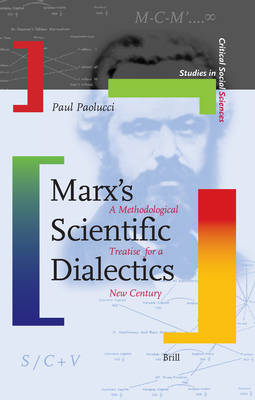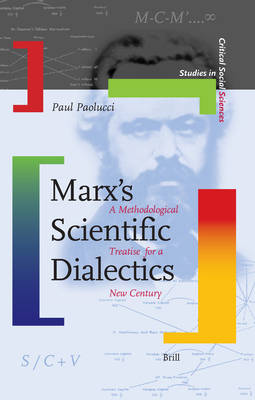
- Afhalen na 1 uur in een winkel met voorraad
- Gratis thuislevering in België vanaf € 30
- Ruim aanbod met 7 miljoen producten
- Afhalen na 1 uur in een winkel met voorraad
- Gratis thuislevering in België vanaf € 30
- Ruim aanbod met 7 miljoen producten
Zoeken
€ 245,95
+ 491 punten
Omschrijving
While Karl Marx's ideas remain influential in the social sciences, there is considerable disagreement and debate on the methodological principles that inform his work. Marx often aligned himself with both "scientific" and "dialectical" principles, at least once referring to his method as a "scientific dialectic," suggesting he believed dialectical reason could be incorporated into scientific method. By debunking several misconceptions about Marx's work and examining how he brought scientific methods to bear on his general sociological thinking, his materialist historical perspective, and within his political economy, this book brings new insight to the methodological principles that animate Marx's writings. What emerges from such a perspective is an approach to sociological inquiry that remains vital and useful for contemporary research on capitalist society and its possible futures.
Specificaties
Betrokkenen
- Auteur(s):
- Uitgeverij:
Inhoud
- Aantal bladzijden:
- 332
- Taal:
- Engels
- Reeks:
- Reeksnummer:
- nr. 8
Eigenschappen
- Productcode (EAN):
- 9789004158603
- Verschijningsdatum:
- 22/06/2007
- Uitvoering:
- Hardcover
- Formaat:
- Genaaid
- Afmetingen:
- 160 mm x 240 mm
- Gewicht:
- 765 g

Alleen bij Standaard Boekhandel
+ 491 punten op je klantenkaart van Standaard Boekhandel
Beoordelingen
We publiceren alleen reviews die voldoen aan de voorwaarden voor reviews. Bekijk onze voorwaarden voor reviews.








